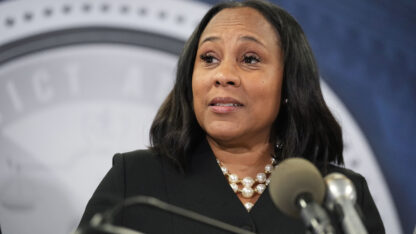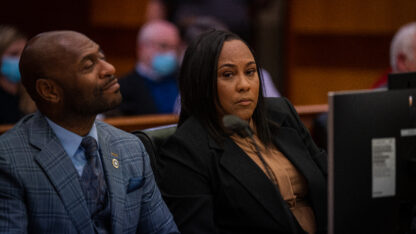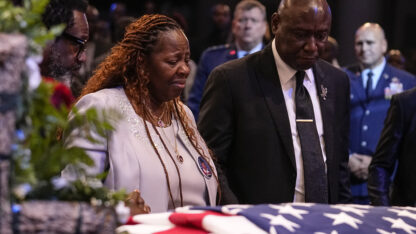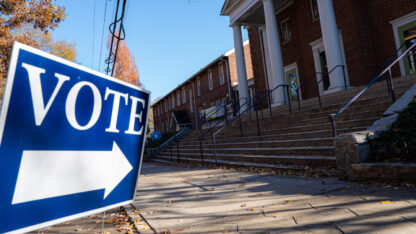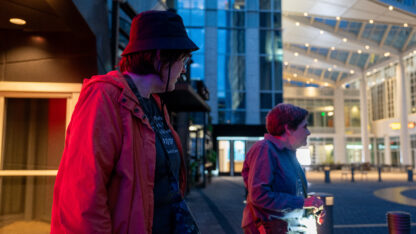Judge orders some evidence protected in Georgia election interference case
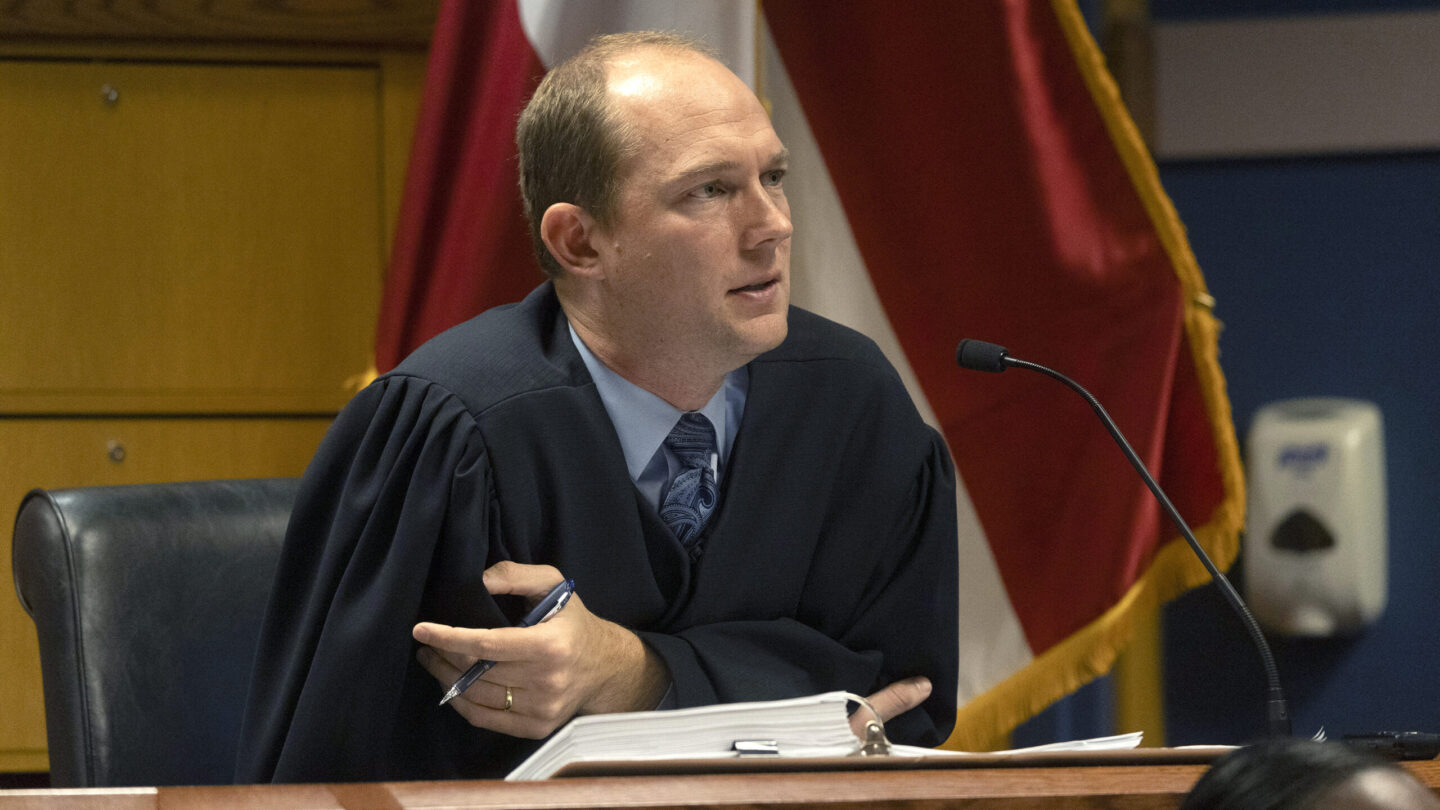
This story was updated on Nov. 16 at 12:48 p.m.
Fulton Superior Judge Scott McAfee on Thursday issued a limited protective order over some sensitive evidence in the Georgia election interference case.
“Sensitive materials shall mean any evidence within the state’s discovery productions to the defendants and their counsel which the state believes in good faith is entitled to confidential treatment under applicable law,” the order stipulates.
Fulton County prosecutors moved to protect witness statements and all other materials shared with defendants through discovery after interview clips from the four defendants to reach plea deals, known as proffers, leaked to the media.
Many remaining co-defendants responded by proposing a more narrow order, which prosecutors say they approve. Instead of a blanket protective order, prosecutors could designate certain sensitive evidence, like proffers, as confidential.
Evidence containing personal information or sensitive business records, for example, could be eligible for this designation. The court would be able to adjudicate disagreements.
Snippets of prosecutors’ interviews with defendants Jenna Ellis and Sidney Powell were first published Monday by ABC News. The Washington Post also posted clips of prosecutors’ interviews with lawyer Kenneth Chesebro and bail bondsman Scott Hall.
In one clip, Ellis recounted a conversation in the weeks after the 2020 election with a senior White House official, who told her that Trump would refuse to leave office.
“He said, ‘The boss is not going to leave under any circumstances. We are just going to stay in power,” Ellis told prosecutors. “And I said, ‘Well, it doesn’t work that way.’ And he said, ‘We don’t care.”
The proffers were distributed to each of the remaining co-defendants through discovery, the pre-trial process where the parties in a case exchange evidence.
“Public release of information contained within discovery could subject witnesses to harassment and threats prior to trial, which could discourage cooperation and candor,” prosecutors wrote in a court filing. “Premature public discussion or release of information could also affect the jury pool.”
In a Tuesday court filing, prosecutors suggested that defendant Harrison Floyd’s legal counsel who may have disseminated the clips, attaching an email in which one of Floyd’s attorneys wrote, “It was Harrison Floyd’s team.”
“He meant to say we are not the source of the leak,” Floyd’s co-counsel Chris Kachouroff told the court, saying it had been a typo.
Floyd, who is accused of participating in a failed effort to pressure election worker Ruby Freeman into falsely admitting she committed election fraud, signed onto the protective order compromise just before the hearing, but then reversed course by the time it ended.
Jonathan Miller, who is representing defendant Misty Hampton, the former Coffee County election director who is accused of helping facilitate efforts to access sensitive voting equipment, then told the court he was the one who disseminated the proffer clips to a media outlet.
“To hide those profers that show all the underlying things that went into those pleas, misleads the public about what’s going on,” Miller said, noting that he believes the profers help his client. “The public needs to know that.”
Tom Clyde, a lawyer representing the Atlanta Journal-Constitution and other media outlets, urged the judge not to issue any protective order.
“Our position is there’s just not a need for a protective order in this environment and the standard that has to be met, even if both sides agree, hasn’t been met,” Clyde said.
McAfee appeared skeptical.
“This case should be tried, not in a court of public opinion, but before a jury and with evidence that has been vetted and approved,” McAfee said.
McAfee has not scheduled a trial date yet, but a motions hearing is scheduled for Dec. 1.
On Tuesday, District Attorney Fani Willis told a live audience at the Washington Post Global Women’s Summit that she expects the trial could stretch beyond the 2024 presidential election.
“I believe the trial will take many months, and I don’t expect that we will conclude until the winter or the very early part of 2025,” Willis said.
That would mean former President Trump could be on trial facing 13 criminal charges in Georgia in the final months of his White House bid and potentially in the lead-up to Inauguration Day.
McAfee will need to schedule around Trump’s other legal cases, including a federal election interference trial set to begin in March.
Willis also noted that after the Georgia trial, appeals could go on for years.

